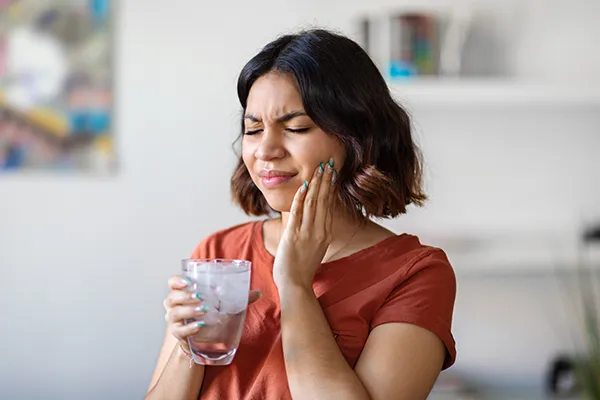TMJ Folsom, CA Temporomandibular disorders, or TMDs, are a group of conditions that affect the temporomandibular joint (TMJ) and the muscles around it. Temporomandibular disorders, or TMDs, are a group of conditions that affect the temporomandibular joint (TMJ) and the muscles around it. The TMJ is in charge of opening and closing your jaw to allow you to speak, eat, drink, and yawn. When these muscles weaken or become inflamed due to an injury or stress, they cause pain in the face which can be debilitating. If you have been experiencing any pain of this sort for more than two weeks, our specialists at Highridge Dental Care recommend coming to see us so that we can help diagnose what's going on with your jaw and how best to go about treating it. What Are TMD Disorders?Temporomandibular disorders, or TMDs, are conditions related to the temporomandibular joint. It is located at the very top of your head. It's connected to your skull by a ligament and cartilage that allow it to slide back and forth in relation to the mouth as you open and close your jaw. This movement helps make chewing possible. If there's pain associated with this process – when opening and closing one's mouth - then an individual has a temporomandibular disorder. The TMJ is also used to widen the mouth, and this movement allows for easy breathing during sleep. However, pain in a person's jaw can cause them to have difficulty sleeping or snoring loudly because of restricted airways. This condition is known as obstructive sleep apnea (OSA). People may also experience headaches if they are suffering from TMD, especially those with migraines that occur on one side of their head. A headache usually corresponds with tenderness around an individual's temples due to swelling above their eye socket caused by increased blood flow associated with inflammation in the joint space.  Causes of TMDOral posture has been found to be a factor in TMD. The position of the jaw, muscles, and other tissues on one side can cause pain or tenderness on the contralateral side (the opposite site). This is because there is more pressure put on certain areas when they are not balanced. For example, if you hold your head up high all day this will lead to neck strain from looking down at objects too much which will then affect your jaw as it creates tension in the temporomandibular joint. Another possible cause could be that you have uneven tooth wear or bite patterns due to improper chewing habits such as biting harder with one tooth than another so that over time it wears away differently causing misalignments between them. Treatment for TMD and TMJTreatment for TMD and TMJ can be done in many different ways. Some of the treatments are more invasive, while others are less so. The type of treatment that is chosen depends on the severity of symptoms a person may have with their temporomandibular joint disorder. Many people who suffer from temporomandibular joint disorders will opt for physical therapy, as this has been shown to be a very effective treatment option. A number of physical therapists prescribe treatments that are designed specifically for TMJ and TMD patients, such as massage techniques and exercises that target the muscles in the jaw region. This can help with pain management by reducing inflammation within these muscle groups. If you experience sharp or intense pain during any time of day it's important to see us about getting tested right away so they can rule out more serious conditions like cancer or infection. If you have any questions about these disorders, reach out to Highridge Dental Care at (916) 983-9929 and we'll be glad to assist in any way we can. |
 Phone(916) 983-9929 HoursMonday -Thursday: 8:00am - 5:00pm Friday: 8:00am - 2:00pm - By appointment |